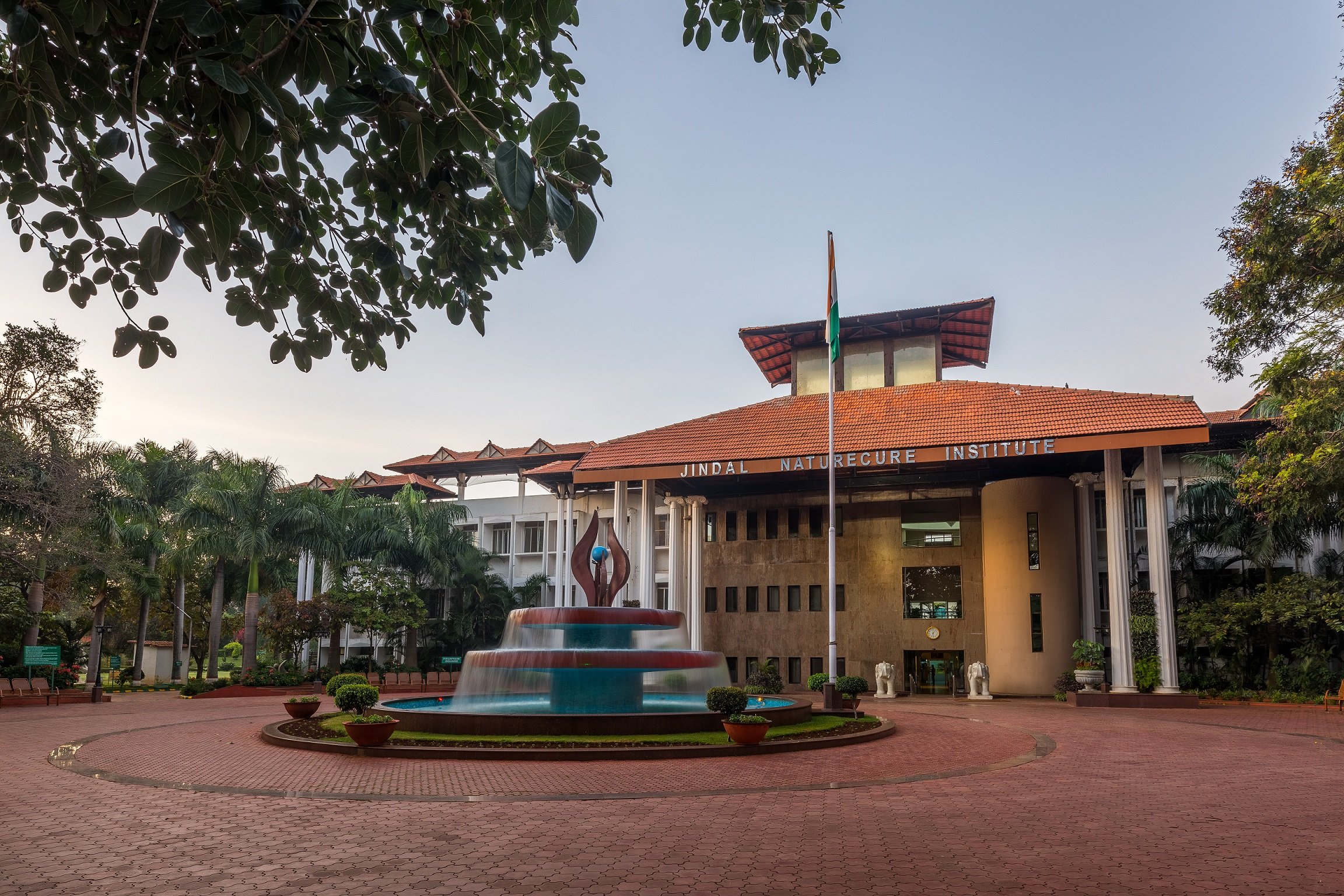
Bengaluru, 08 November, 2019: Rising incidence of both obesity and Poly Cystic Ovary Syndrome (PCOD) have emerged as a significant healthcare concern among women in India and the world. Even as modern medicine struggles to find an effective treatment for the conditions, Jindal Naturecure Institute (JNI) has launched a major research program to test the efficacy of Naturopathy and Yoga in treating the twin disorders in a sustainable way.
The research is being conducted at Institute of Naturopathy and Yogic Science – Medical Research Society (INYS-MRS) , Bengaluru and has invited applications from affected patients living within 800 kms of Bengaluru, Karnataka. The patients are being provided with free food, ward and treatment for 21 days.
“Both PCOD and obesity have emerged as major modern lifestyle disorders. The disorders have origin in hormonal and metabolic malfunctions and need a treatment approach that can address the root cause of the disease and reset the body’s natural processes. Unfortunately, modern medicine does not offer effective and sustainable solutions for these conditions. In 40-80% of women with PCOD, obesity is found to be occurring concurrently. We have a fair understanding of how natural treatment approaches and lifestyle modifications can bring about positive improvements in people with these disorders without any ill effects. The main of our research project is to find conclusive scientific evidence for the same,” said Dr. Babina, Joint Chief Medical Officer, Jindal Naturecure Institute.

PCOD is a hormonal abnormality that affects women of reproductive ages. It is estimated to affect around 8-11% of women. Recently, changing lifestyles including sedentary work, lack of physical activity, increased consumption of processed foods, etc have contributed to a rise in the incidence of PCOD. Increased androgen production, menstrual irregularity, hirsutism, and infertility are common manifestations of PCOD. Additionally, PCOD also has metabolic implications including problems with insulin action and β-cell function that result in increased risk for type 2 diabetes. Incidentally, obesity is a common finding in women with PCOD and obesity itself is a prominent risk factor for cardiovascular diseases, diabetes, and hypertension. Currently, the treatment for PCOD involves restoring hormonal levels through the use of birth control pills or diabetes drugs.
A hypothesis of the research suggests that Naturopathy and Yoga treatment can comprehensively yield good results in terms of weight loss and regulating the menstrual cycle in women. The treatment consists of a regimen of natural treatments like massage therapy that helps fat mobilization, water therapy that helps elimination, fasting on juices, diet therapy to heal and nourish the body, mud therapy for detoxifying, yoga and hydrotherapy to harmonise the glands..
It has been found that obesity is the mother of all health problems, hence healthy food habits and exercises are a must for prevention of obesity. Exercising for 1-2 hours daily and drinking adequate quantity of water (3 to 4 liters) is critical to control obesity. Exercise increases the pulse and depth of breathing. It not only burns fats but the muscles/bones also become stronger, the strength of the heart increases and water-soluble toxins get eliminated through perspiration.
Yoga offers a highly viable solution to tackle the condition of PCOS. A combination of Naturopathy and Yoga allows the restoration of hormonal balance besides offering a remedy for anxiety and depression that are common among women with PCOD. Both treatments are effective in treating PCOS with long-lasting benefits. It can be easily practiced by the ladies in the rural population as a safe, effective and economical way of treating PCOS.
“This research project is open for patients living within 800 kms around Bangalore. It has been seen that environmental factors such as faulty lifestyle, contribute to the development of obesity in PCOS. The consistent link between PCOS and obesity suggests a biologic basis for this observation. Moreover, obesity aggravates many of the reproductive and metabolic abnormalities associated with PCOS,” said Dr. G Prakash, Deputy Chief Medical Officer, Jindal Naturecure Institute.





